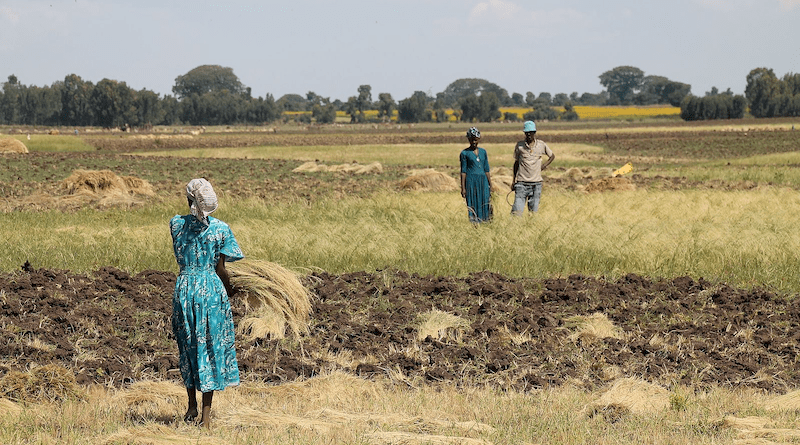Agricultural Knowledge Exchange Benefits Ethiopia And Europe
In Wolaita, Ethiopia, poor or erratic rainfall used to occur every five or so years, but according to Pat Gibbons from University College Dublin, it now happens every two or three. Meanwhile, the government’s struggles to provide adequate assistance has led to social and political unrest.
“The communities’ capacity to absorb frequent shocks and stressors is exhausted. In the medium to longer term these rural communities need a transformation in their livelihoods if they are to survive,” says Gibbons, project coordinator of the EU-funded BRTE project.
BRTE is a long-term initiative that was inspired by the Nelson Mandela quote: “education is the most powerful weapon you can use to change the world.” Given that securing Wolaita’s future livelihoods is dependent on commercial agriculture, the project contributed to the (re)designation of Wolaita Sodo Universityby the Ministry of Education as an ‘applied agricultural university’.
“Providing quality education and research that can shape the socio-economic future of the region should enhance food security and provide produce, such as fruit and vegetables, that will create jobs,” adds Gibbons.
After navigating the challenges of both the COVID-19 pandemic and a civil war in Ethiopia, the Marie Skłodowska-Curie Actions project has already published 15 peer-reviewed papers.
Mutual gain
BRTE was co-designed and co-managed by the project partners, three education institutes and a charity. BRTE’s approach was not ‘charitable aid’ but a more mutually beneficial relationship.
“Traditional assistance, while welcomed as sometimes life-saving, has often been reactive and short-lived. Increasingly, rural households are selling assets and migrating to urban centres in search of alternative livelihood opportunities, leading to ever-growing urban slum areas further challenging fragile states. We need a sustainable locally owned solution,” explains Gibbons.
So BRTE prioritised the ability of Ethiopian academics to adopt and adapt the aspects of European know-how most applicable to their context, while recognising that European partners also had much to gain from their southern partners.
Enabling educational exchanges
The project coincided with the roll-out of a national modularisation programme in Ethiopia, which developed options such as joint PhD degrees and practical work experience qualifications.
“But, while WSU scholars could introduce European learning to the existing national system, joint initiatives were impossible without enablers such as mutually recognised qualifications and common credit systems,” says Gibbons. “Our early challenges were quite similar to the early years of Erasmus in Europe.”
To help facilitate these educational exchanges, the project developed a platform offering various modules to academics across a range of disciplines and at different academic levels. These included modules on research methodologies, the localisation of aid and gender-based violence, amongst others. Senior administrators were also able to study national, institutional, college and school systems to design, ratify and manage the delivery of third-level education modules.
A sustainable future for all
BRTE’s approach aligns well with the EU’s policies and strategies to partner with fragile states, supporting them in navigating their own development. “With the impact of climate change, global migration and internal conflicts dominating the news, it’s only by addressing inequities that we can build a sustainable future for all,” notes Gibbons.
An end-of-project survey showed that 75 % of mobility scholars intended to maintain contact with peers in partner institutions, after the project. A team of academics will now visit WSU to support the development of a new ‘university farm’ as an exemplar of agricultural commercialisation in Wolaita, initiating BRTE II – the follow-up project. There are also plans for a book on the BRTE experience to encourage replication by other institutions.
Source: This article was published by CORDIS

